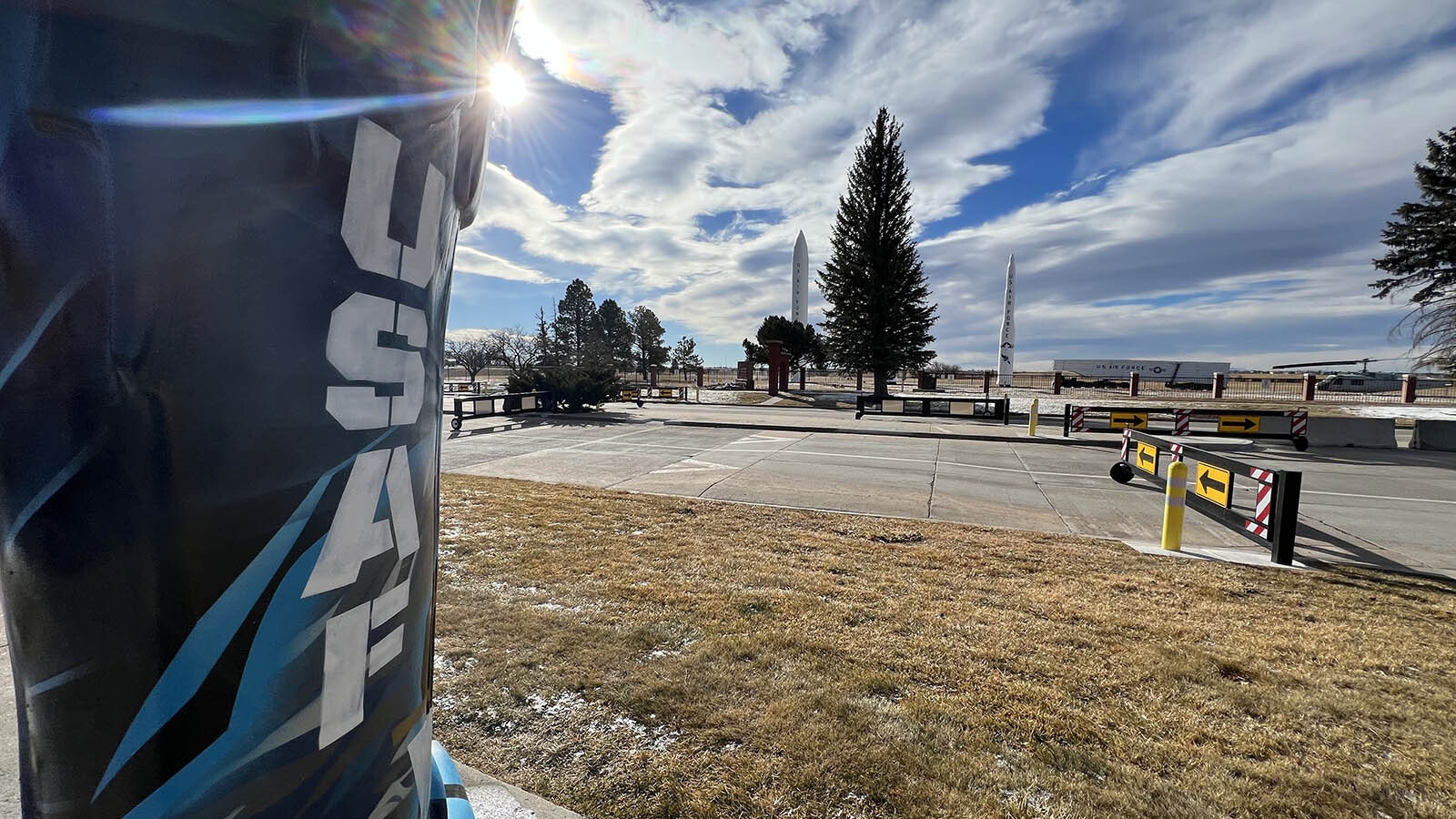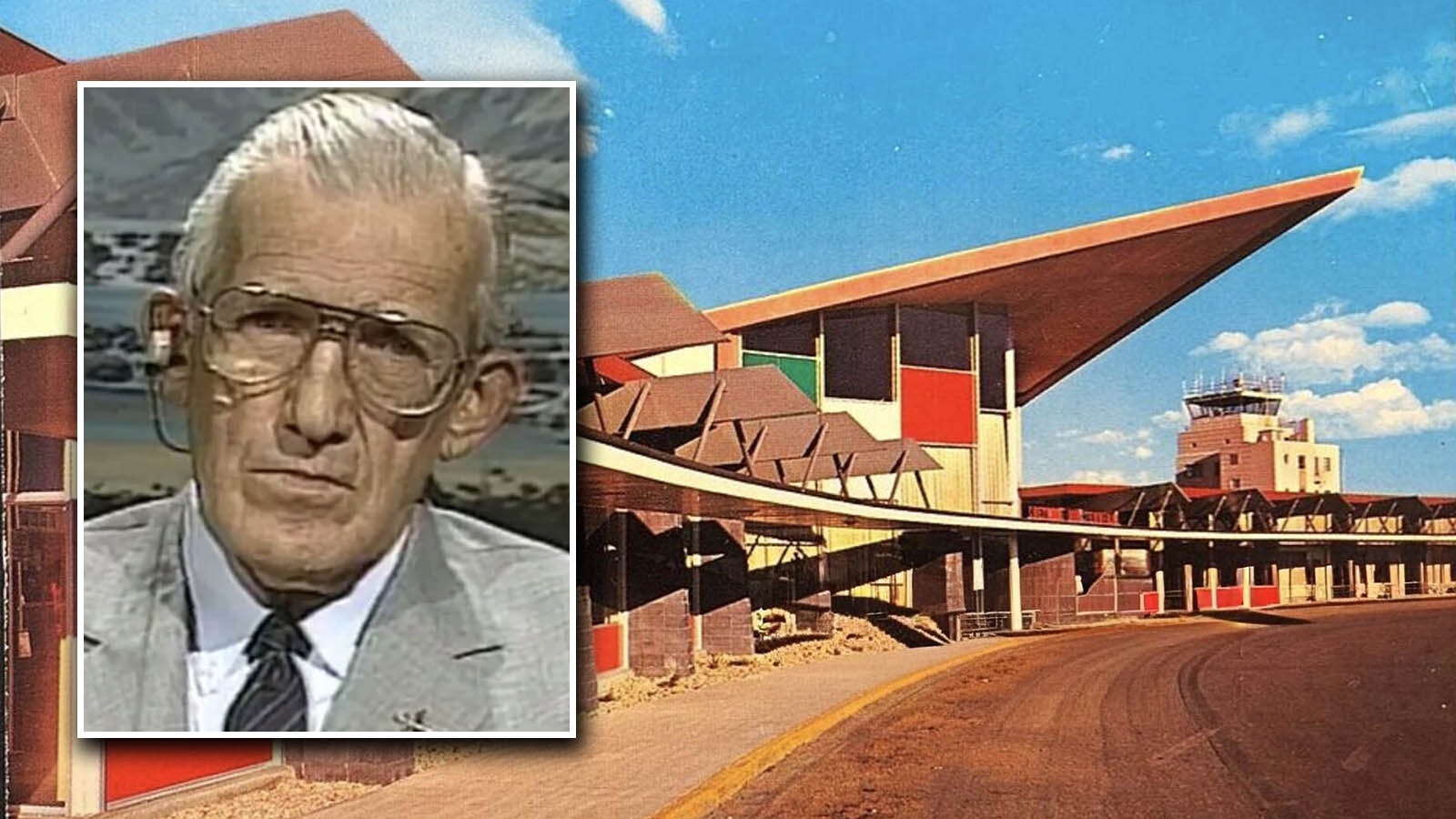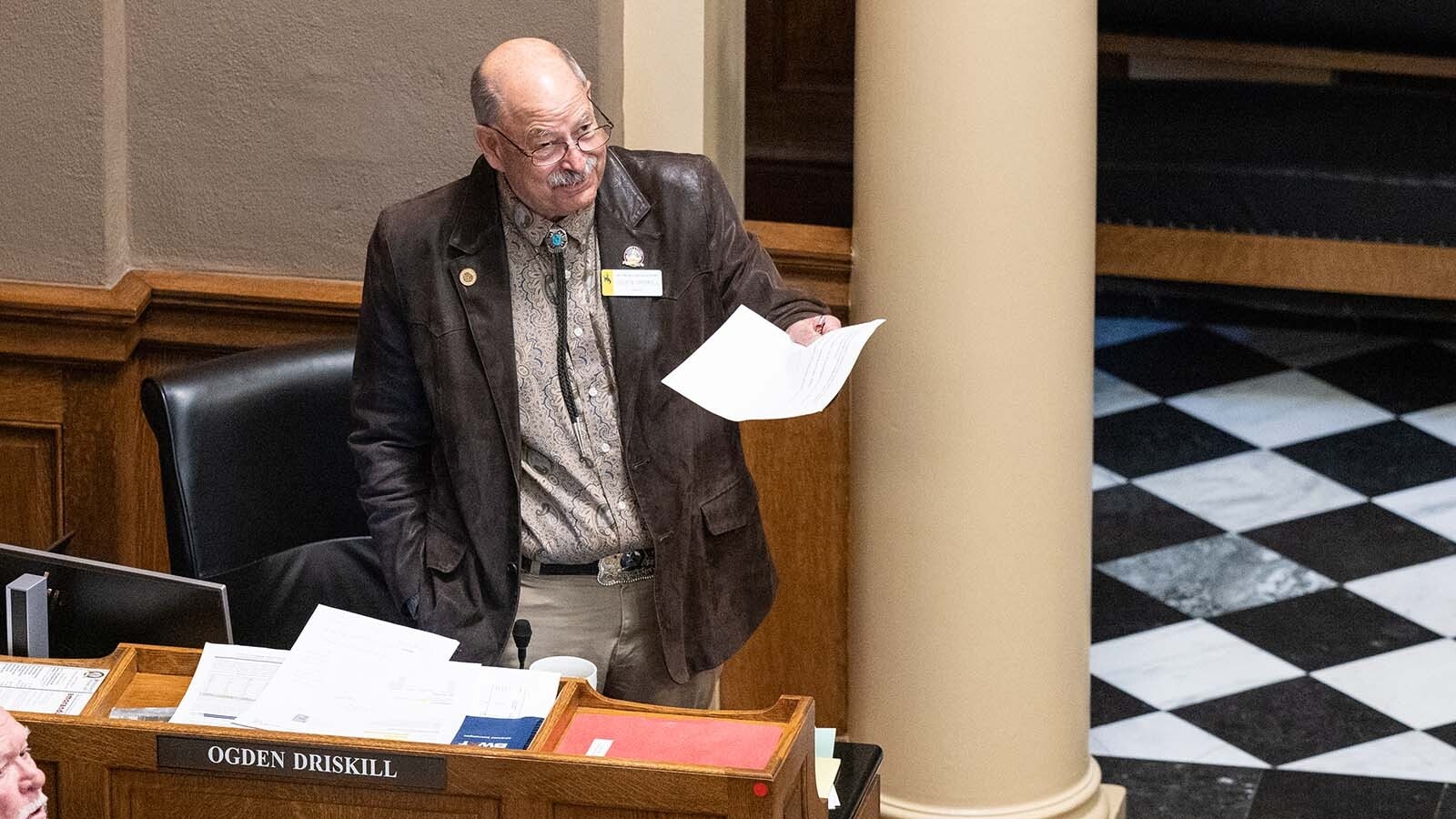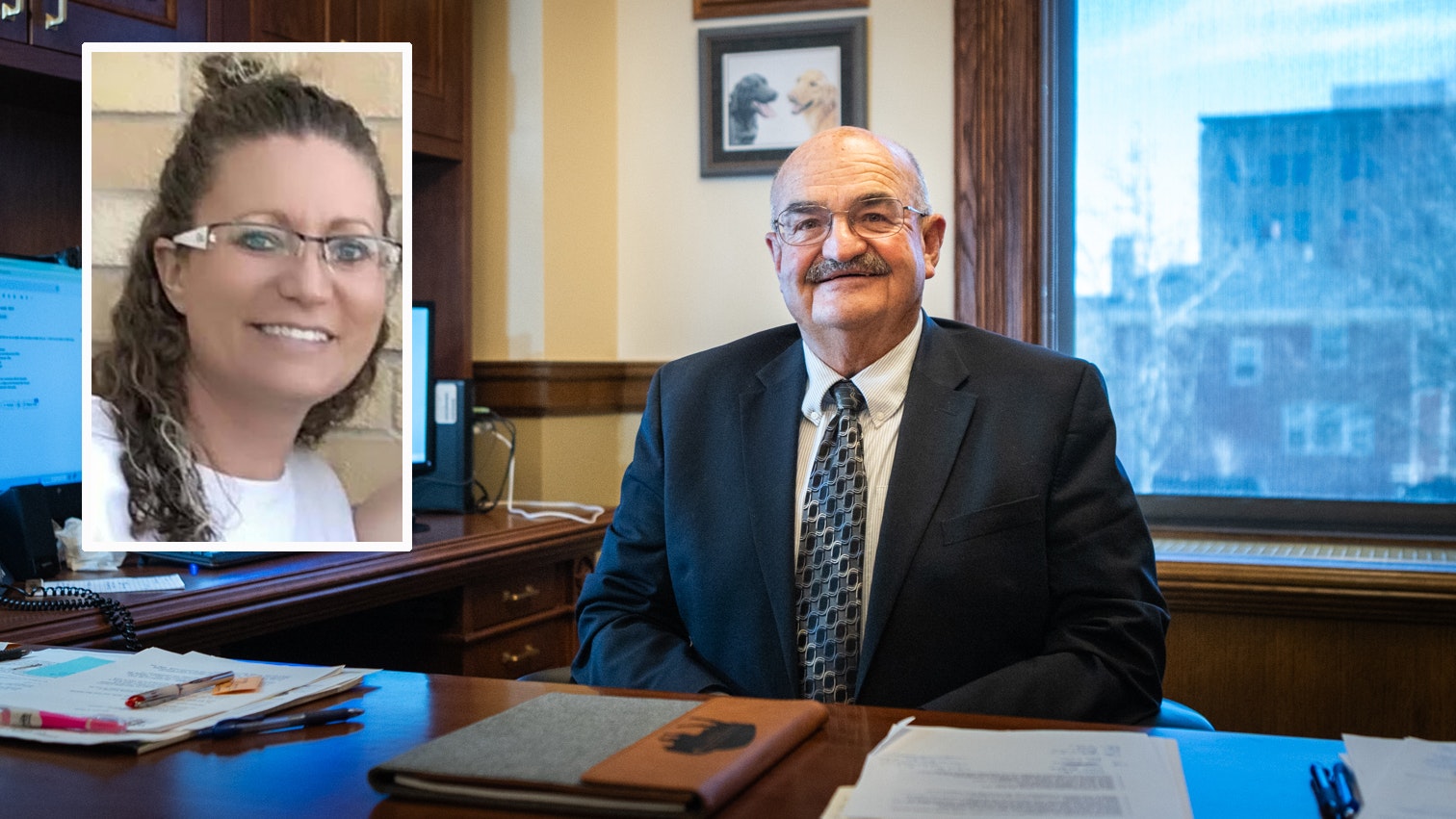CHEYENNE — A report that huge inflation costs could halt plans to replace America’s aging Minuteman III missiles with Sentinel missiles, which will mean $2.6 billion to the Cheyenne economy, isn’t likely, local officials and military experts told Cowboy State Daily.
The rising costs of replacing the nation’s aging intercontinental ballistic missiles are not really a surprise to the military complex that’s been working on the replacing the Minutemen III missiles in Wyoming and surrounding states, say military experts and local officials who have been coordinating with Sentinel contractor Northrup Grumman and military officials, including those at F.E. Warren Air Force Base.
Their sense of the project is that the cost increases caused by inflation and other factors are unlikely to force the project’s termination as suggested by a recent Bloomberg report.
A Dec. 15 Bloomberg story reported that cost increases have ballooned so much for the Sentinel project that it is likely to trigger a review of whether to keep the program or terminate it.
Bloomberg went on to suggest that the cost overruns could embolden arms control advocates like Democratic Sen. Elizabeth Warren of Massachusetts, who has previously pressed for the project’s termination in favor of extending the life of the Minutemen III missiles.
No Surprises here
“I took from reading the Bloomberg article that this is somehow a big surprise,” Cheyenne Chamber of Commerce President Dale Steenbergen told Cowboy State Daily.
Steenbergen is among local officials who participate in regular calls with Sentinel contractor Northrup Grumman as well as military personnel involved in the upgrade to discuss the military complex’s local needs in Cheyenne and surrounding areas. The calls range from labor markets to housing needs, as well as general information about the project.
“I have not heard anybody say this costs too much, we cannot do it. Including people in Congress, who you would expect to say that,” Steenbergen told Cowboy State Daily. “You have not heard a lot of squealing in Congress about this.”
Steenbergen said his impression is that everyone involved has understood all along that there would be a continual look at costs and other factors affecting the project.
“We need to review every dollar we spend,” he added. “Just because it triggers a review doesn’t mean it’s a big negative thing. I think we’ve all known, those of us who are involved, that some major review and revisits would need to be done.”
Steenbergen also pointed out that Congress has, all along, been approving new tranches of funding for the Sentinel program, and that development of the replacement missiles has been ongoing.
Northrup Grumman, for its part, has reported on its website that it test-fired the stage-1 solid rocket motor for the Sentinel missile back in March.
“The motor fired for the anticipated duration and (it) met performance parameters and objectives within expected ranges,” a media release from Grumman stated, indicating it is a major milestone for the missiles, which will include three stages in all.
Maj. Gen. John Newberry, Air Force Nuclear Weapons Center commander and Air Force program executive officer for strategic systems, also praised the results.
“This test shows the Sentinel program is now in the phase of its development where physical hardware is being tested in real-world conditions,” he said. “It is further evidence that AFNWC will successfully deliver this capability to the war fighter.”
Other Challenges Are Bigger But Not Insurmountable
Steenbergen believes the issues that will prove more challenging to the Sentinel program are things like finding enough engineers and military personnel to do the project.
“Those are not insurmountable problems,” he said. “But you do have to have X number of engineers to do something like this.”
Getting rid of the nation’s intercontinental ballistics missile defense system wouldn’t be a small thing, Steenbergen added.
“It’s not getting to be an easier environment,” he said, referring to geopolitical situations. “And one-third of that deterrence mission, one-third of that triad lies here. So we’re not talking about whether to close a small part of the Air Force. It’s a project that’s been part of our defense for more than 50 years.”
Nuclear Arms Race Is Already Well Underway
At one time, the United States was trying to go the no nuclear weapons route, but other countries haven’t followed suit.
In fact, new countries have been developing sophisticated missiles with long-range capability, such as North Korea and Iran.
“North Korea and Iran remain persistent threats,” a communication from Director Michelle C. Atkinson said when the Department of Defense outlined its 2024 budget request earlier this year. “But today the national defense strategy views China as the pacing challenge, and Russia as an acute threat to U.S. national security interests.”
Russia and the PRC have been improving the speed and capabilities of their missiles, with things like unpredictable flight paths, Atkinson said in the document.
It was not long after a maneuverable Chinese spy balloon was spotted by civilians wandering over sensitive sites in the U.S. — dipping briefly down into Crook County Wyoming as well — that officials in the Department of Defense said in public documents justifying the Sentinel Program that China has likely already surpassed the United States in the number of nuclear-capable, land-based intercontinental ballistic missile launchers. That means that their ground defenses are more than sufficient to block incoming nuclear weapons from the U.S., negating American missiles effectiveness as a real deterrent.
The documents went on to stress that these factors make it imperative to address that situation by replacing the Minutemen III missiles and continuing to improve the country’s capabilities.
What Do Military Experts Think
The nuclear arms race is one reason those with a lot of military experience don’t believe that the Sentinel program is in any real danger of being terminated.
Retired Col. Tucker Fagan, who was at one time commander of F.E. Warren Air Force Base, is among those in this camp.
“There was a break-over point,” Fagan said. “For some reason I think it was 2020, where they concluded it would be too expensive to go back and redo the Minutemen III.”
Senator Warren at that time had pushed for that option, but an analysis of that idea showed a tipping point had already been reached for taking that action.
The Minutemen III missile dates back to the early 1970s, and had a planned service life of 10 years. Their lifespan has been extended for going on four decades now.
Fagan likened modernizing such old missiles at this point to trying to somehow make a 1950s Chevrolet into a self-driving car.
“There was a crossover point where it is just too expensive to catch up,” Fagan said. “That was in 2020, 2021. Do you think it’s going to be any cheaper to do that today? No, (that option) is going to be that same increase that the Sentinel is now facing.”
Geopolitical tensions, meanwhile, have continued their own rise, Fagan added.
“What do you think is going on with Putin, Xi Jinping, Kim Jong Un, Ayatollah Khomeini — I mean, come on,” he said.
Fagan believes current global tensions make it unlikely there will be enough political will to damage the Sentinel program, particularly after millions have already been spent on it.
Wyoming Lawmakers Pledge To Defend New Missiles, F.E. Warren
Wyoming lawmakers, meanwhile, echoed some of the same sentiments about the necessity of America’s ICBM program, and promised they would fight to keep the program on track.
“Cheyenne’s F.E. Warren Air Force Base is on the front line of ensuring we have a strong nuclear deterrent,” Sen. John Barrasso, R-Wyoming, told Cowboy State Daily in an email. “As a member of the Senate ICBM Coalition, I’ve backed legislation to strengthen the Sentinel Program, and modernize our nuclear forces. If the Air Force finds this program is too costly in its current form, we must work to get it back on budget and on schedule. Failing to modernize our ICBM force will impact our national security at a time when our adversaries are advancing their nuclear programs.”
Sen. Cynthia Lummis, R-Wyoming, said she joined her colleagues earlier this year in introducing legislation to push the process of modernizing the nation’s nuclear systems forward, as well as to increase the program’s efficiency.
“I’m disappointed to see reports the project is over budget and at risk of being delayed,” she said in an email to Cowboy State Daily. “The Sentinel Program is not only an important part of the United State’s nuclear triad, it is an essential part of the work being done at F.E. Warren Air Force Base in Cheyenne. (It) is critical to countering China, and I will continue to work in the Senate to ensure this program is able to meet its objectives.”
Renée Jean can be reached at renee@cowboystatedaily.com.





